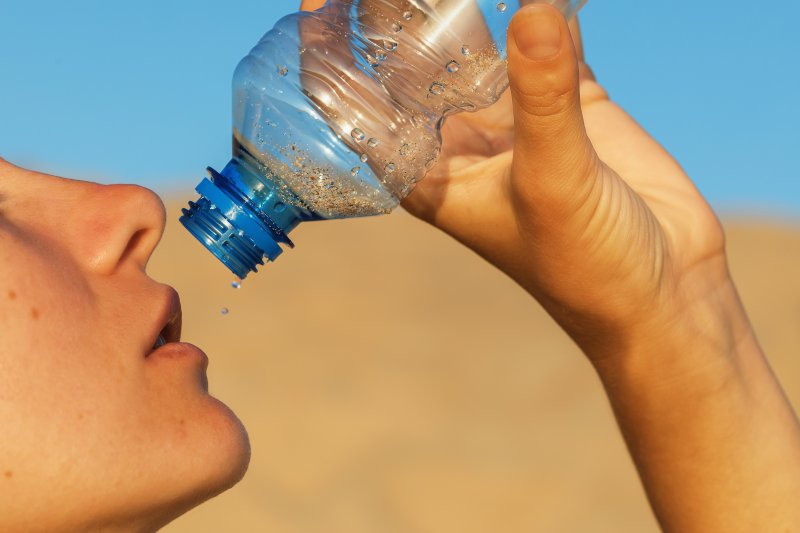How To: Recognize the Subtle Signs of Dehydration
July 28, 2023

As the weather heats up, you might begin to sweat a lot more than in colder seasons. Dehydration occurs when you are not drinking enough fluids to replace those you’ve lost. Water makes up over two-thirds of your body, so any fluid loss can negatively impact your oral and overall health. Unfortunately, knowing when you’re in the early stages of dehydration isn’t always easy! To help you out, here is how to recognize the subtle signs of dehydration.
The Oral Health Consequences of Dehydration
Dehydration can affect the health of your teeth and gums. Saliva plays an important role in keeping your mouth healthy by washing away food debris and neutralizing bacterial acids. Your saliva covers your teeth with essential minerals such as calcium, phosphate, and fluoride, which help strengthen your teeth.
So, if your volume of saliva decreases, your risk of dry mouth and dental disease increases significantly.
Signs You’re Inadequately Hydrated
Here are a few signs to watch out for that you might not associate with how much water you’re drinking:
- Bad breath or dry mouth – Your mouth won’t be producing as much saliva, which has enzymes to break down food and rinse bacteria from your mouth.
- Headache – A mild to moderate headache is a common sign you’re not drinking enough water. Dehydration can actually temporarily shrink brain tissue or trigger migraines.
- Darker urine –If it’s pale yellow, you’re hydrated. If it’s a darker yellow, it’s time for a glass or two of water. A general rule is the more water you have, the clearer your pee should be.
- Muscle spasms or cramps – Whether or not you work out, if you’re not drinking enough water you can deplete your electrolytes and become dehydrated. Your body won’t have enough of the essential minerals that control the functions of your nervous system and balance your pH levels.
- Loss of energy – Drinking enough water is crucial to maintaining energy throughout the day, because hydration helps deliver key nutrients to your cells, allowing your organs to function as normal. Hydration also has a direct impact on sleep quality.
How to Best Prevent Dehydration
There aren’t any concrete rules about how much water you should drink within a 24-hour period. A general rule is to drink when you’re thirsty and stop when you’re quenched. Both excessive hydration and dehydration can lead to fatigue.
However, thirst isn’t the best indicator of whether or not you’re dehydrated. There are a number of factors, such as age, that can influence whether or not you have a diminished sensitivity to thirst. By the time you’re thirsty, you might actually already be mildly dehydrated.
Be sure you are conscious of how much water you’re drinking in a day. Keeping a reusable water bottle with you is a great way to ensure you’re aware of how much you’re drinking. Eating foods with high water content, such as fruits and vegetables, helps prevent dehydration. If you’re routinely exercising or out in hot weather, drink extra fluids to balance out how much you’re losing from sweating.
About the Practice
At Bear Creek Family Dentistry, our incredible dental team provides a comprehensive range of various dental services. We have specialists for preventive, restorative, and pediatric dentistry, as well as oral surgeons and orthodontists, on hand to make sure you’re getting the dental care you deserve. If you want to learn how to best protect your smile, contact the Bear Creek Family Dentistry team through our website or call one of our 12 convenient locations.
No Comments
No comments yet.
RSS feed for comments on this post.
Sorry, the comment form is closed at this time.
